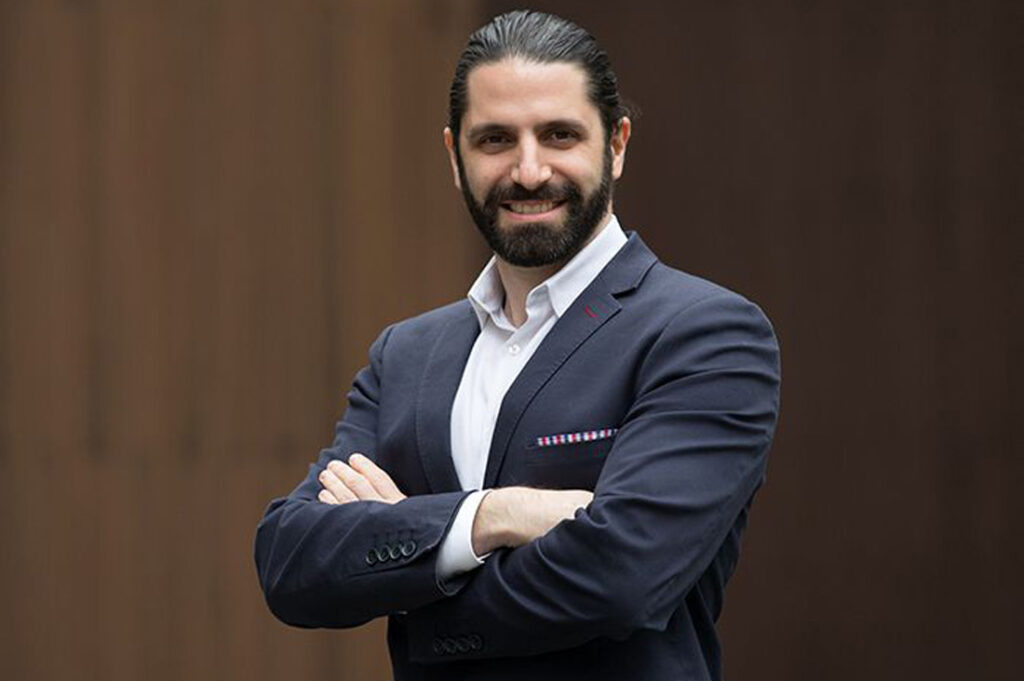Jon Levy found out he was dyslexic as a kid. As a result, he says, “I didn’t really have the option to read, write and take notes in the same way as everybody else. I had to develop different ways and different skills to cope.” To compensate, he says, he developed social skills.
A couple of decades later, Levy applied those social skills to create the Influencers Dinner, a now-global series of events that brings together 12 guests to cook and dine together, during which they guess each other’s careers. Guests have ranged from Olympians and celebrities to scientists, Nobel laureates, artists and corporate executives. There have been more than 300 Influencers Dinners in 11 cities and four countries to date.
These events are just one avenue of influence for Levy, the author of You’re Invited: The Art and Science of Connection, Trust, and Belonging and The 2 AM Principle: Discover the Science of Adventure. As a researcher with Northwestern University’s Kellogg School of Management, Levy led a 2019 study that analyzed a dataset of more than 421 million potential matches between users of an online dating app to predict “synchronization and similarity in dating preferences.”
Applied behavioral science, Levy notes, is all about translating research about behavior and applying it to real-world scenarios—something that can help leaders thrive. Here’s how.
Jon Levy’s tips for becoming a better leader
Start by understanding human behavior
“There’s a lot of theories about how people behave,” Levy says. “And a lot of that is actually really inaccurate.” But, Levy notes, “When we understand how human beings behave, two or three things occur.” One is we can cut through “unrealistic expectations.”
For example, Levy says “expecting all of us to wake up every day at 6 a.m. and journal and then workout and then meditate for 20 minutes,” means some of us wouldn’t have any time to work.
Another benefit to understanding human behavior is maximizing productivity. Levy says knowledge workers—people whose value is in their thoughts and what they create with them, such as programmers, architects and writers—max out at about five hours a day of solidly productive work. “If we know that, then let’s let people get their work done when they’re productive, and then let’s do the meetings during the times that they’re not going to be so productive.”
Then foster connections
Understanding human behavior can impact how companies go about recruitment and retention. “We know that if you have a significant number of friendships or relationships at work, you’re going to stick around,” Levy says.
Culture programs are “something that brings the company’s values to life.” They can be wide-ranging: team volunteer days, employee awards, icebreaker activities and games that help people get to know each other, or Slack channels for shared interests, like pets or babies.
“I work with companies where we develop conversations, games and activities that are completely turnkey,” Levy says. “So, if a manager has somebody new join the team, you just pick from a list… and then you have an entire game that lets people get to know each other in a really significant way in 15 to 30 minutes.”
Levy says these initiatives allow for “small units of interaction that facilitate belonging,” generating trust and connection, and improving ideas and workflow.
Continue to build trust
The vulnerability loop is a concept from Harvard Business School in which employees mutually signal and acknowledge vulnerability with one another, by sharing a weakness, a worry or a lack of knowledge.
When this happens, both individuals know they’re safe. “Good culture programs allow for vulnerability loops like that to occur, consistent with the values of the organization,” Levy says, adding that they also allow for better ideas. “Suddenly, we can improve the ideas [because] you’re not worried that I’m going to punish you…. We have a base level of trust.”
Always share success, says Jon Levy
In You’re Invited, Levy writes out an “Influence Equation” based on the idea that “our influence is a by-product of who we are connected to… and the sense of community we share.”
It is useful to understand the practicality and advantages of community as well as our basic human need for it. Levy points to studies like the Harvard Study of Adult Development, which shows you will live longer and better with strong social ties and solid social integration, measured in the number of people you come into contact with on a regular basis or your community.
“The predominant narrative that Western culture likes to sell is this individual superstar who has it all together. And, frankly, it is so unrealistic and so stupid,” Levy says. “If you’re successful, why wouldn’t you want to bring some people along for the ride? Even if you could do it alone, couldn’t you be so much more effective with the right group of people around you?”
This article originally appeared in the Sept/Oct 2023 issue of SUCCESS magazine. Photo courtesy of Jon Levy.



